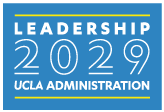Colleagues,
We will return to Part 3 of the Supervisor Development Series next month. This month, we want to ensure that the retirements on the horizon are at the front of your mind, as some of your team members may begin their retirement planning.
As retirement planning is expected to be busy in the next three months, organizational leaders face a critical challenge: how to ensure continuity, maintain productivity, and preserve institutional knowledge. Proactive planning and strategic execution are essential to successfully navigating this transition.
1. Prioritize Knowledge Transfer
One of the most pressing risks of retirement is the potential loss of institutional knowledge. Leaders should implement a structured knowledge transfer process in advance whenever possible. This can include mentorship pairings between outgoing employees and peers, detailed documentation of key processes, and interviews that capture insights and experiences. Departments can also create an exit interview template that focuses specifically on capturing role-specific knowledge, key contacts (internal and external), and any ongoing projects or undocumented processes. Creating a knowledge repository accessible to current and future employees helps retain organizational memory.
2. Assess and Adjust Workforce Plans
Conduct a skills gap analysis to determine which competencies will be lost and where reinforcements are needed. Evaluate the department’s current structure and consider if retirements provide potential restructuring opportunities. In some cases, a 1:1 replacement may not be the most strategic move. Retirements can be a catalyst for rethinking workflows and team structures to align with current efforts to improve efficiencies. Adjust your hiring strategy to prioritize roles with critical skills. Consider internal promotions and utilizing existing campus development programs to fill gaps quickly and sustainably.
3. Begin Planning for Recruitment
If those departing hold critical roles that the department needs to refill urgently, now is the time to conduct a review of the individual’s current position description. Partner with the incumbent to update the position description to ensure it accurately reflects the current role, as well as incorporate any needed changes. Create a recruitment timeline that reduces the time the organization is without this position and allows for additional time to navigate the hiring review and approval process. A sample recruitment timeline for reference is available.
4. Communicate Transparently and Supportively
Change brings uncertainty, so consistent communication is vital. Clearly outline your organization’s plan to manage the retirements and reassure remaining staff about continuity and opportunities for growth. At the same time, celebrate retirees’ contributions through recognition events, which reinforce a positive culture and honor institutional legacy. Retirements are a regular annual occurrence, so consider creating communication templates that will be needed regularly, such as announcing a retirement, providing teams recruitment status updates, and other scenarios.
5. Strategic Talent Planning
Refer back to your established succession plan and strategic talent plan or begin crafting one if it’s not already in place. Identify high-potential employees and provide them with development opportunities. This ensures your leadership pipeline remains strong and responsive to future changes.
6. Embrace a Culture of Agility and Learning
Finally, foster a culture that values adaptability and continuous learning. Encourage cross-training, collaboration, and innovation. Organizations that embrace change are better positioned to thrive through generational shifts.
By acting now with clear intent and empathy, leaders can transform a potential disruption into a strategic opportunity for renewal and growth.
For additional information about retirement, please visit the following guidelines and resources:
- MMT Article: Retirement Planning & Resources
- UCNet Retirement (Benefits, Resources, & More)
- What to Do When You’re Planning for Retirement
- Retirement Planning Resources

Interested in reviewing prior months’ topics? Visit our Monthly Management Tips website.
Do you have feedback, questions or a suggested topic you would like to learn more about? Please email: managementtips@ucla.edu.
Want to receive Monthly Management Tips emails? Sign up for our list!

